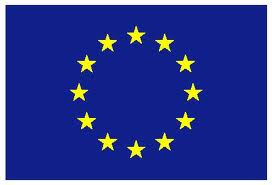General overview
Background
Historically, there was no comprehensive framework for the screening of foreign direct investment (FDI) operating across the European Union. Instead, individual Member States could adopt their own FDI screening regimes without any supranational mechanism enabling coordination among Member States or promoting common standards. The lack of a harmonised approach to FDI screening raised concerns about the effective assessment and control of risks to security and public order where a relevant investment might have an adverse effect across multiple Member States (with this risk exacerbated by the high degree of integration achieved within the EU internal market).
On 10 May 2017, the European Commission (the Commission) published a ‘Reflection paper on harnessing globalisation’[2] in which it launched a debate on how the European Union and the Member States could shape globalisation in a way that could benefit all. In this paper, the Commission underlined its commitment to build an open, sustainable, fair and rules-based system of global trade. In this context, the Commission recognised the importance of inbound FDI for economic growth, job creation and innovation in the European Union. However, the Commission also affirmed its commitment to protect the EU economy and citizens when foreign countries or companies engage in unfair practices or make acquisitions raising EU security and public order concerns.
On 13 September 2017, the Commission published a ‘Communication on Welcoming Foreign Direct Investment while Protecting Essential Interests’, in which it laid down, for the first time, a proposal for an EU-wide FDI screening mechanism.[3] In this Communication, the Commission again acknowledged the substantial economic and wider societal benefits arising from FDI. It also reiterated, however, the risk to security or public order that could potentially arise when foreign investors – particularly those that are state-owned or controlled – seek to acquire control of or influence over European undertakings whose activities relate to critical technologies, infrastructure, inputs or sensitive information.
To address these concerns – and recognising that closer cooperation and better coordination between Member States were essential to ensure the effective scrutiny of FDI – the Commission proposed (on the basis of Article 207 of the Treaty on the Functioning of the European Union) the creation of an EU-wide framework for the screening of foreign direct investment into the European Union on grounds of security or public order.[4]
The EU Regulation on foreign investment screening
On 10 April 2019, the EU Regulation on foreign investment screening (the FDI Regulation) entered into force and became fully operational on 11 October 2020.[5] The main objectives of the FDI Regulation are to provide an EU-wide cooperation framework between the Member States and the Commission and to establish common criteria to identify risks relating to the acquisition or control by foreign investors of strategic assets that might threaten security or public order. The Regulation is only concerned with inward FDI (i.e., investment from abroad in assets based in the European Union). The FDI Regulation does not apply to intra-EU investments. Similarly, it does not regulate EU investors’ access to third-country markets (which is governed by other trade and investment policy instruments).
The FDI Regulation does not create a pan-EU system for vetting FDI at EU level. The Commission still has limited powers, as set out above. The primary responsibility for vetting FDI remains with the Member States, which will continue to apply national law while respecting the provisions of the FDI Regulation. The FDI Regulation also does not oblige Member States to adopt an FDI screening mechanism or seek to achieve the full harmonisation of existing FDI screening mechanisms across the European Union. Instead, it provides for information sharing and cooperation between Member States and the Commission. This involves the mandatory notification to the Commission and other Member States of any FDI scrutinised at the national level, including the provision of certain specified information. The FDI Regulation also requires that existing (and any new) regimes comply with a minimum set of requirements, while also encouraging those Member States that currently do not have an FDI regime to adopt relevant rules.
Screening factors
The FDI Regulation only applies to FDI that may raise concerns relating to security and public order. Although the concepts of ‘security’ and ‘public order’ are not expressly defined in the FDI Regulation, its Article 4(1) provides the following non-exhaustive list of sensitive sectors and other relevant factors that the Member States and the Commission may focus on when determining whether an FDI is likely to affect security or public order:




